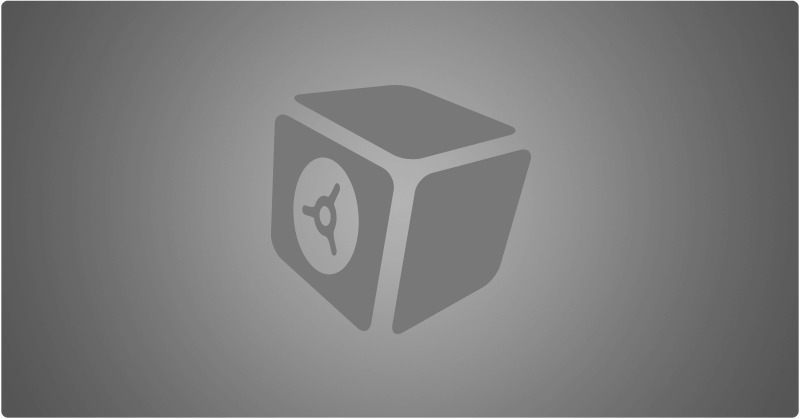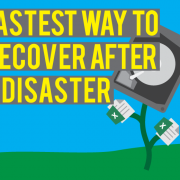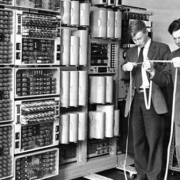Why Are People Still Using Tape to Backup?
In this modern era rife with the myriad efficiencies of computers, smart phones and other digital devices, the fact that some people still tout the value of using tape technology for anything is truly baffling. Indeed, it would seem to be a true “no brainer” that the use of hard drives and other modern digital storage devices would have fully eliminated the outdated technology of the tape long ago. But, alas, this is not the case.
Why is this so? Well, for one, some people actually think that tape backup is safer and more secure than the more modern methods of using hard drives, but this is simply not the case at all, with cloud-based backup technology being far more reliable than that of the obsolete digital tape. One reason people might be under this incorrect assumption is the fact that almost all computer users have had a hard drive fail at least once in their lives (this is, of course, the whole reason we back up our data in the first place), and so they think that tape backup is somehow less likely to fail.

However, while people access the hard drives on their computers constantly, the only time they usually test their backup tapes is in the case of a data loss catastrophe, which is usually a relatively rare occurrence, so they almost never check the tapes to see if the data is corrupted. In addition to this, the fact that cloud backup allows for your data to be transferred to another physical location automatically means that your data is protected from the big disasters as well, like earthquakes and fires, which tape backup cannot guarantee at all.
Others might tell you that they think that tape backup is less complicated and easier to use than off-site cloud backup. They probably feel this way because tape backup is an older technology than cloud backup and so, sadly, this antiquated method is what they are used to using, with the ease of use and efficiency of cloud based backup simply being unknown to them. However, objectively evaluated, the use of tape backup systems is a much more cumbersome process, requiring the dedication of far more time and energy, with the risk of data loss always just around the corner unless you stick diligently to your schedule and constantly monitor your backup systems.
Cloud backup, on the other hand, can be almost entirely automatic if you want it to be, ensuring that your backed up files are always as up-to-date as possible, often times even allowing for open and unsaved files to be backed up as they are worked on. Furthermore, in the event that you need to retrieve any lost data, cloud-based systems allow you to search through your backed up files to find and restore the most important ones first, rendering the idea of tape backup being easier to use even more absurd.
Finally, others still somehow believe that tape backup is more cost effective. This is extremely hard to believe, primarily due to the inefficiency of tape backup users having to own, maintain and oversee the operations of all their own backup equipment. Indeed, it is far more financially efficient to outsource the data backup operations of any given company to another specialized party, who have the resources and expertise to perform backups as efficiently and cheaply as possible, effectively passing this savings on to the cloud backup user. In addition to this, those who take advantage of cloud-based backup also end up saving their company time, which is, as everyone knows, money, leaving their IT guys with more time to worry about other important aspects of their business. And, with many cloud backup companies having customer service available around the clock, as well as providing a “pay-as-you-go”-style utility model, their company only has to invest in more storage or features as it needs them, saving more money by avoiding high priced investment in purchasing their own backup systems.
So, there you have it, just some of the reasons why cloud-based backup systems are the most intelligent choice for any business. Indeed, with cloud backup being far more reliable, cost effective and easy to use than tape backup systems, the choice between the two should be an easy one to make for any wise business owner.







Leave a Reply
Want to join the discussion?Feel free to contribute!